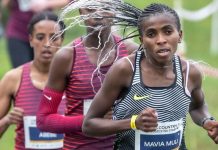Whether you are a beginner or training to be a pro, you need to understand that as runners, food is more than just nutrition, food is fuel for you. This is why what you eat and drink and in what quantity is very important.
When you are training for a long race or to become a professional runner, you will have to make some nutritional and lifestyle changes that make you more equipped for this journey.
If you are a newbie runner or you are just looking for some information about nutrition tips for runners, you have come to the right place. Working up your nutritional plan as a runner can become a bit overwhelming and requires some practice. However, these tips should be very helpful to get started.
Eat before a workout or training session
Just like any car, your body needs fuel and energy to run. Running on an empty stomach will cause you the feeling of fatigue and you might not be able to give your best. Hence, it can help you to get in the habit of eating a meal about 2 to 3 hours before a run or a snack within 1 hour.
Besides, if you are training for a marathon, you must be burning a lot more calories than you do normally. Hence, it is important to replace them. The calories you burn also depend on your gender, size, and intensity of your workout. However, you might have to eat more to replace those calories with highly nutritious food or as recommended by your nutritionist or fitness trainer.
Keep yourself hydrated, no matter the temperature
We often see people associating hydration with summer and sweating, but if you are training or going high intensity workout or if you live in a cold place you have to be mindful about staying hydrated around the year. Not drinking enough water on a daily basis can be detrimental to the success of your training as a runner.
A tip to remember is that if you didn’t pee during a long run and you don’t feel the need to do so within 30 minutes of the run, it means you may be dehydrated and drink more fluids during your runs.
Eat healthy snacks
If given an option we all would binge on delicious food without having to worry about their nutritional value and when you don’t have the right food options available to you, it becomes very difficult to avoid snacking on unhealthy food items.
Hence, when you are planning your meals, make sure to keep some good, healthy options available to snack on between the meals or as your pre-workout or post-workout snacks. Some healthy snack options you can opt for as a runner may include fruits, protein shake, nuts like fair trade cashews and almonds, oat bites, and pumpkin cookies.
Don’t overeat
Overeating can be just as bad as not eating enough. There is a proper way to recover the calories you are burning in running with nutrition and stuffing yourself with brownies is sadly not the right way.
You are likely to feel hungry when you are training for a marathon. It doesn’t necessarily mean you need to eat more food. However, if you are hungry all the time, it means you need to change your meal plan and ensure if you are eating the right amount of protein, carbs, and other nutrition.
Eat the right food
When you are training to a professional runner, you need to make sure you eat the right food that enables and supports you to give your best performance. Let’s better understand your food components.
Carbohydrates
Carbs are one of the primary sources of energy for running and they should be a compulsory component of your meal plan when training or working out.
Carbohydrates are like jet fuel for your muscles. Your body breaks down carbs and turns them into glucose, which is burned to enable you to move forward. Besides, when you are running carbs give you immediate energy.
However, it is important to consult a nutritionist or a medical professional to guide you on how much carbs your body needs considering your physical activities. That said, you need to consume a more digestible and quicker source of carbs for energy before a race.
You can find complex carbs in foods like pasta, cereals, bread, and dairy or you can also go some simple sugary foods like fruits and sports drinks for instant carbs.
Fat
The stored fat in the body is also an important source of energy for endurance exercise and the dietary fat enables your body to absorb vitamins. Unlike what some people might tell you good fats are very important for the body. Your body needs a backup source of energy, especially when running long distances. Even though eating a fat-rich meal before a run is not at all ideal because they are not quickly converted into energy, but you need to include some dietary fats in your meals.
It’s important to eat a mix of fats, including saturated, monounsaturated, and polyunsaturated. You can find saturated fats in food like butter, dark meat, red meat, chicken with the skin, and coconut oil. Seeds, fish, and avocado are few food items that contain polyunsaturated fats and you can find monounsaturated fats in olive oil, some nuts like bulk cashews, and avocados.
Protein
Protein is not a source of fuel for your body, but it is a muscle builder. For runners, protein acts as a nutrition that helps rebuild, reshape, and recondition muscles. When you run your muscles break down and protein helps rebuild the muscles to ensure you can keep running without losing the muscle mass.
Runners should aim to take some form of protein within 20 to 30 minutes after workout or training. However, make sure to consult your nutritionist on how much protein you need to consume in a day and how to break in your meals and snacks.
Fish, chicken, beans, beef, pork, dairy, eggs, soy, and barley are a few good sources of protein. However, if you are looking for a good plant-based source of protein you can use quinoa, cashew flour, peanut butter powder, and chia seeds.
Mimic your race day during the training
If you are a newbie runner and you are training for a marathon, it is ideal to mimic your race day in the training session as well. Often new runners end up feeling overwhelmed or find it difficult to keep up on the marathon or race when they don’t level up their training to match the circumstances of the marathon.
It really helps you prepare in the best way possible. For example, wake up at the same time as you would for the race, have the same breakfast and go for the run and cover the same distance. It will give you a good idea about how your body is reacting to it and you can prepare yourself better for the actual race.
Find a running buddy
If you are a newbie, you might benefit from finding a running buddy to keep your motivation levels high, especially during the initial few months. Whether it’s a friend of also runs or a local running group, find out what works the best for you and make it part of your practice. Being around other runners will also give you runners tips that you can also adopt, from their nutrition routine to quick fuel for the body.
Talk to an expert
If you are planning and training to become a professional runner, then it is very important that you consult an expert. A registered dietitian, nutritionist, or fitness trainer can help you create a customized meal plan for you, considering your training, workout intensity, body size, weight, and what you are preparing for. At times, no matter how hard you train, you can’t achieve your body goals unless you support your training with the right nutrition. So, make sure you talk to an expert who can guide you through your journey to become a runner.
Keep practicing and running!
Putting these nutrition tips into practice can get you started on the right track to becoming a runner. Getting your body and your mind on track and adopt the necessary lifestyle in terms of training and eating the right body will take some getting used to but keep practicing and running and you will get there!




























